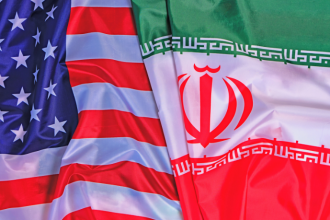The assassination of Charlie Kirk on September 10, 2025, profoundly shook the political landscape of the United States. Kirk, a conservative activist and founder of Turning Point USA, was shot while speaking at the University of Utah Valley. This tragic event not only shocked the nation but also reignited intense debates over free speech, political polarization, and the role of right-wing organizations in the country.
Immediately following the incident, President Donald Trump ordered flags to be flown at half-staff nationwide in honor of Kirk. Additionally, he announced the intention to designate the Antifa movement as a terrorist organization, accusing it of being responsible for acts of political violence. This decision sparked controversy, with critics arguing that such a measure could be a way to silence political opposition and restrict civil liberties.
The assassination also provoked international reactions. São Paulo Governor Tarcísio de Freitas expressed condolences over Kirk’s death, highlighting his defense of values such as freedom and family. This expression of international solidarity reflects the growing global concern over the rise of extremist movements and the erosion of democratic norms in the United States.
However, the Trump administration’s response was not unanimous. Democratic leaders, such as Representative Jasmine Crockett, opposed the proposal to designate Antifa as a terrorist organization, questioning the legality and political motivation behind this action. This partisan divide underscores the deep polarization characterizing contemporary American politics.
Furthermore, Kirk’s assassination led to increased surveillance and repression of political demonstrations, especially those associated with the left. Civil rights organizations expressed concern over the excessive use of force by authorities and the potential for abuse of power in the name of national security.
The media also played a crucial role in shaping public opinion on the case. While some media outlets emphasized the importance of protecting free speech and combating political violence, others were accused of inciting hatred and intolerance, further exacerbating social division.
This episode underscores the urgent need for a national dialogue on the limits of free speech, the role of political organizations, and the preservation of civil rights. Charlie Kirk’s assassination should not be viewed merely as an individual tragedy but as a reflection of the tensions and challenges facing American democracy in the 21st century.
In conclusion, the death of Charlie Kirk serves as a warning about the dangers of political polarization and intolerance. It is imperative that the United States seek ways to reconcile its differences, strengthen its democratic institutions, and ensure that freedom of speech is preserved for all citizens, regardless of their political orientation.
Author: Clodayre Daine









